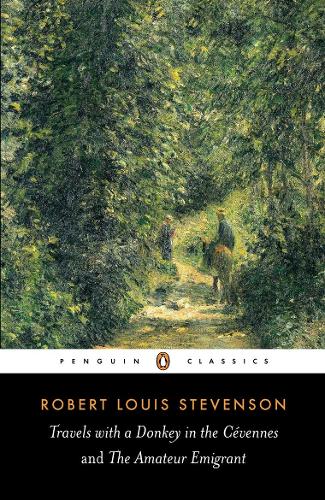
Travels with a Donkey in the Cvennes and the Amateur Emigrant
(Paperback)
Publishing Details
Travels with a Donkey in the Cvennes and the Amateur Emigrant
By (Author) Robert Louis Stevenson
Edited by Christopher MacLachlan
Penguin Books Ltd
Penguin Classics
14th September 2004
29th July 2004
United Kingdom
Classifications
General
Non Fiction
914.40481
Physical Properties
Paperback
320
Width 129mm, Height 198mm, Spine 18mm
242g
Description
In 1878, Robert Louis Stevenson was suffering from poor health, struggling to survive on the income derived from his writings, and tormented by his infatuation with Fanny Osbourne, a married American woman. His response was to embark on a journey through the Cevennes with a donkey, Modestine, and a notebook, which he later transformed into Travels with a Donkey. Just a few months after publication, Stevenson was off again this time crossing the Atlantic and the breadth of America in the hope of being re-united with Fanny, an experience he recorded in The Amateur Emigrant. Both pieces are classics of travel writings, which reveal as much about Stevenson's character as the landscape he travels through.
Author Bio
Robert Louis Stevenson was born in Edinburgh in 1850. The son of a prosperous civil engineer, he was expected to follow the family profession, but was allowed to study law at Edinburgh University. Stevenson reacted strongly against the Presbyterian respectability of the city's professional classes and this led to painful clashes with his parents. In his early twenties he became afflicted with a severe respiratory illness from which he was to suffer for the rest of his life; it was at this time that he determined to become a professional writer. The effects of the often harsh Scottish climate on his poor health forced him to spend long periods abroad. After a great deal of travelling he eventually settled in Samoa, where he died on 3 December 1894. Stevenson's Calvinistic upbringing gave him a preoccupation with pre-destination and a fascination with the presence of evil. In Dr Jekyll and Mr Hyde he explores the darker side of the human psyche, and the character of the Master in The Master of Ballantrae (1889) was intended to be 'all I know of the Devil'. Stevenson is well known for his novels of historical adventure, including Treasure Island (1883), Kidnapped (1886) and Catriona (1893). As Walter Allen comments in The English Novel, 'His rediscovery of the art of narrative, of conscious and cunning calculation in telling a s
